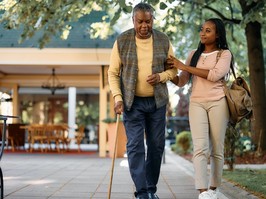dementia
dementia is not a specific disease but a general term for a decline in mental ability severe enough to interfere with daily life. it describes a group of symptoms associated with a decline in memory, reasoning, or other thinking skills. dementia involves damage to brain cells and affects people's ability to communicate, which can impact their emotional behaviour and personality.
the most common cause of dementia is alzheimer's disease, but there are other causes as well. these include vascular dementia (due to microscopic bleeding and blood vessel blockage in the brain), lewy body dementia, and frontotemporal dementia. mixed dementia, where several types occur simultaneously, is also possible.
symptoms of dementia can vary greatly but typically include memory loss, difficulty communicating or finding words, difficulty with visual and spatial abilities, reasoning or problem-solving, handling complex tasks, planning and organizing, coordination and motor functions, and confusion and disorientation.
diagnosing dementia involves a thorough medical history, physical examination, laboratory tests, and characteristic changes in thinking, day-to-day function, and behaviour. brain scans such as mri or ct scans can help identify strokes or tumors that may cause some dementia symptoms.
there is currently no cure for most types of dementia, but there are treatment options that can help manage symptoms. these include medications to temporarily improve symptoms or slow their progression, and various therapies such as occupational therapy, which can help manage behaviour.
support for caregivers is also a critical component of dementia care, given the challenging nature of the disease. support groups, respite care, and educational resources can be invaluable.
ongoing research is focused on finding new ways to prevent, detect, and treat dementia, including alzheimer's disease. this includes exploring the role of genetics, medical conditions, and lifestyle factors in the development of dementia.























